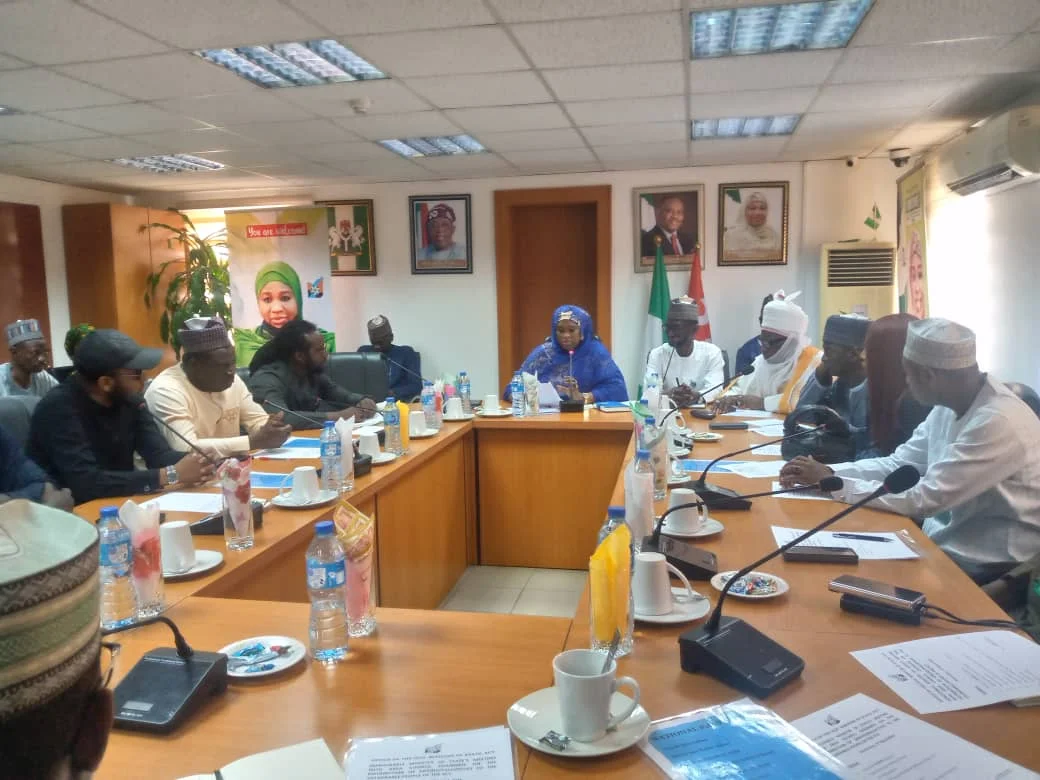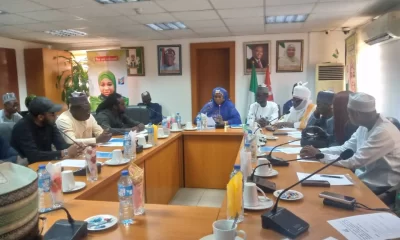Business
Kogi Budgets N74.9bn For 2016
Governor Idris Wada of
Kogi State has presented an Appropriation Bill of N75 billion for the 2016 fiscal year.
Wada presented the bill, christened: ‘’Budget of Consolidation’’ to the state assembly in Lokoja for consideration and approval.
The Tide source reports that only 10 members, including the Speaker, Alhaji Momoh-Jimoh Lawal, out of 25 members, were present during the exercise.
The governor said the budget was 15.3 per cent or N13.6 billion lower than that of 2015.
He said it was his belief that the proposed 2016 Budget was clearly indicative of his fair, sincere and frank assessment of resources accruing to the state.
“The total budget package for year 2016 is N74, 996, 241, 381 as against N88, 617, 070, 854 billion approved for year 2015 which is a decrease of N13.6 billion or 15.37 per cent compared to the 2015 Revised Budget,’’ he said.
Wada said the budget had Recurrent Expenditure of 45.3 billion, representing 60.4 per cent and Capital Expenditure of N29.6 billion,representing 39.5 per cent.
According to him, the budget is drafted in line with international best practices.
Wada said that the specific objective of the budget was to allow for effective allocation of scarce resources.
“Also, to identify critical programmes and projects including completion of on-going projects and new ones in the critical areas of need.
Other objectives, according to the governor, include to expand the revenue base in the area of Internally Generated Revenue (IGR).
‘’To produce a conducive environment for investors and donor agencies to operate and as well, to reduce the level of domestic debt profile of the state.’’
Wada commended the state Ministry of Budget and Planning for complying with the directive to the 21 local government areas to align their Accounting and Budget formats with Chart of Account of International Public Sector Accounting Standard (IPSAS).
Business
NCDMB Tasks Media Practitioners On Effective Reportage

Business
FCTA, Others Chart Path To Organic Agriculture Practices

The Federal Capital Territory Administration (FCTA) and other stakeholders have charted path to improved organic agriculture practices nationwide.
At a 2024 national organic and agroecology business summit held recently in Abuja, stakeholders took turn to speak on the additional areas of promoting the practices.
The Mandate Secretary, FCT Agriculture and Rural Development Secretariat (ARDS), Lawan Geidam, advocated for sustainable practice to develop resilient food systems that will benefit people.
The event, with the theme,”Towards Policies for Upscaling Organic Agroecological Businesses in Nigeria”, is aimed at fostering growth in the organic agriculture sector.
Geidam, who was represented by the Acting Director, Agric Services, in the Secretariat, Mr. Ofili Bennett, emphasised the success of organic and agroecological farming, reling on the active involvement of farmers, businesses and consumers.
He reassured attendees that the FCT Administration, led by the Minister, Nyesom Wike, and Minister of State, Dr. Mariya Mahmoud, remains dedicated to supporting initiatives that enhance the livelihood of residents.
Geidam described the partnership between the Secretariat and the organic and Agroecology initiative for a monthly exhibition and sale of organic products in the FCTA premises as a testament to this commitment.
“The ARDS remains committed to driving policies and initiatives that align with national goals and global standards”, Geidam said.
On her part, the Chairperson of Organic and Agroecology Initiative, Mrs. Janet Igho, urged residents to embrace healthy eating habits to sustain a good lifestyle. She stressed the importance of adopting organic practices, highlighting the benefits of going organic, growing organic and consuming organic products.
Igho expressed her optimism regarding the Agricultural Revival Programmes as articulated in President Bola Ahmed Tinubu’s “Renewed Hope Agenda”, which aims at fostering food and nutrition security.
She also extended her gratitude to ARDS for graciously allocating a space in the FCTA premises for the exhibition and sale of organic products, noting that the platform has been effectively used to advance the promotion of organic agriculture in FCT.
Igho outlined several benefits of organic agriculture which includes improved soil health, increased biodiversity, availability nutritious and healthy food and a reduced carbon footprint.
Stakeholders at the summit, underscored the critical need for enhanced private sector involvement and robust capacity building initiatives for farmers.
They highlighted the importance of implementing supportive policies to foster the growth of the organic agriculture sector.
In the light of the significant challenges facing Nigeria’s agricultural landscape, stakeholders decided that organic agricultural practices present sustainable solutions and a pathway for a more resilient and productive farming systems.
The three-day summit featured exhibitions showcasing organic foods, fruits, vegetables and fertilizers, providing an opportunity for residents to better appreciate the benefits of production and consumption of organic agricultural products.
Business
Dangote Refinery Exports PMS to Cameroon

-

 News4 days ago
News4 days agoNCDC Allays Fears Over COVID-19 XEC Variant
-
Business12 hours ago
NNMDA To Train 5m Nigerian Youths On Cassava Plantation
-
Women6 hours ago
Cooking And Its Importance To Women
-

 News4 days ago
News4 days agoSGF Asks Northerners To Wait For 2031 Presidency
-

 News4 days ago
News4 days agoTinubu Congratulates Ghana’s President-Elect, John Mahama
-
Niger Delta10 hours ago
Bayelsa, Rivers To Establish Joint Anti-Vandalism Taskforce On National Grid, Others
-

 Business6 hours ago
Business6 hours agoFCTA, Others Chart Path To Organic Agriculture Practices
-

 Business4 days ago
Business4 days agoNCDMB Recommits To Youths’ Capacity Building

